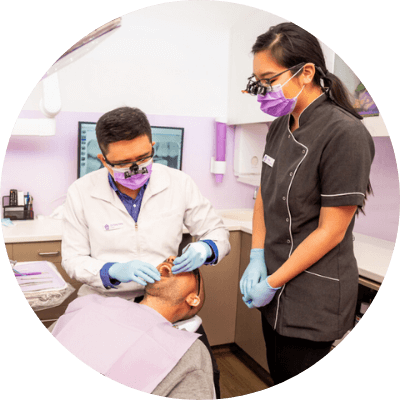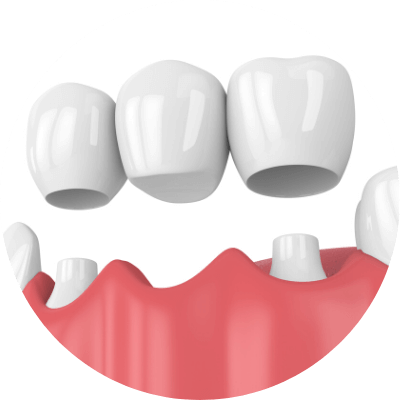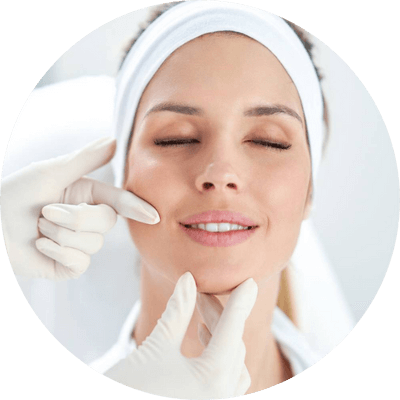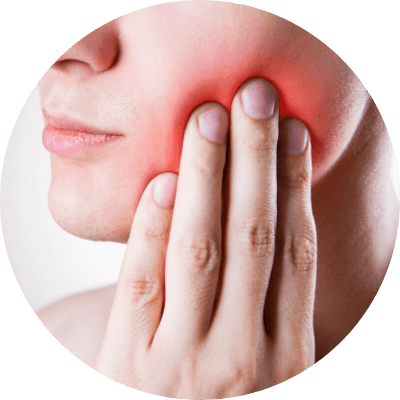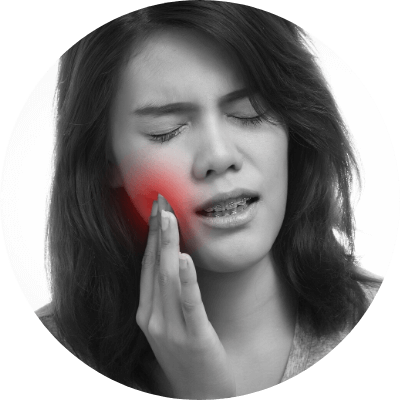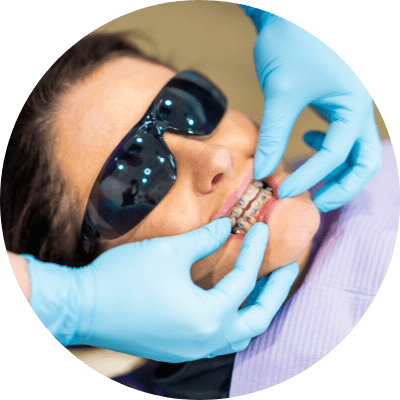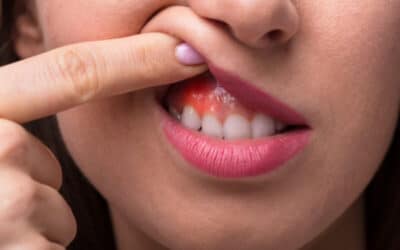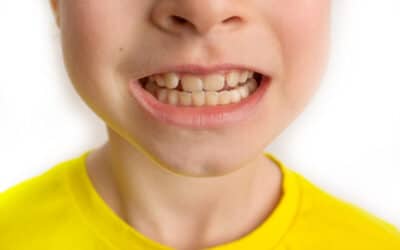14 Reasons Your Tooth Hurts
14 Reasons Your Tooth Hurts
There are many reasons why your teeth might hurt, but all of them are worth a check-in with a dentist, says consumer advisor for the American Dental Association Matthew Messina, DDS, a dentist in Columbus, Ohio. “Pain is not supposed to be there. If something in your mouth doesn’t feel right, make an appointment with a dentist to have it looked at,” he says.
Ignoring discomfort just gives the underlying cause time to get worse, and it’s easier to treat tooth pain before it becomes a serious problem, says Manhattan-based prosthodonist Mazen Natour, DMD. “You don’t want something that could have been fixed very easily with a simple filling to become a big production like a root canal or a crown,” says Dr. Natour. Untreated tooth pain, he adds, could eventually even lead to the loss of a tooth. Is that really worth skipping an appointment?
Check out these 14 reasons your teeth might hurt, and if any of these sound like what you’re dealing with, talk through your tooth pain symptoms with your dentist.
You have a cavity
A cavity is a hole in a tooth caused by decay that eats away at the hard outer surface of your teeth, called enamel. At first, cavities might not cause any symptoms, but they can eventually lead to a toothache, especially if the cavity gets very large and close to the nerves inside the teeth, Dr. Natour says. Painful cavities are the leading cause of toothache complaints in his practice, he says, but he wishes patients would come complaining even earlier. “The patient has usually felt something maybe several months ago but ignored it, and now the pain is really unbearable,” he says.
Severe cavities typically cause sharp pain that’s bad enough to wake you up when you’re asleep, and the pain often gets worse when you lie down, Dr. Natour says. Small cavities can usually be filled easily and forgotten about, but when a patient comes in with nearly unbearable pain, a dentist may be left with few treatment options other than a root canal therapy, a treatment to clean out the roots of a tooth, he adds.
You exercise—a lot
Exercise is great for your body (and mind!), but could it be hurting your teeth? Maybe, suggests a study in the Scandinavian Journal of Medicine & Science in Sports. Researchers found that triathletes who did endurance training had a greater risk for tooth erosion (a loss of enamel due to acid on the teeth) compared to people who didn’t exercise. And the longer they worked out each week, the more likely they were to have multiple cavities. Dentists suspect it might have something to do with saliva—or a lack thereof.
“Saliva is more than 90% water, and you breathe it out through your mouth,” says Gigi Meinecke, DMD, a spokesperson for the Academy of General Dentistry. “Any time your mouth is dry, you put yourself at risk for cavities because bacteria thrive vigorously in that environment.” That could be a problem if you often do long, intense sweat sessions where you breathe heavily and don’t hydrate enough or don’t replenish fluids lost afterward.
Your filling fell out
A cavity filling can fall out if too much force is applied to the area, or the material breaks down, Dr. Meinecke says. Decay around or under a filling can also cause breakage. Some patients may not even feel something missing until they bite down. “Food can get pushed into the area as they chew,” she says. “The space can start packing food where the filling left a void and cause pressure.” The area could also be sensitive to temperature until it’s fixed. Be sure to see your dentist right away to patch it up.
You have an abscess
That kernel of popcorn that got stuck in your teeth at the movies could come back to haunt you. When particles of food are jammed between your teeth and you keep chewing, you essentially push the food farther into the gums, Dr. Natour says. “Over time, this creates inflammation and pain,” he says, and it can even produce a pocket of space called an abscess along the gum line, where lingering food and debris decays, breeding infection. You might notice swelling and even pus at the site of an abscess. The sooner you get one treated the better, as an untreated abscess can lead to gum disease. Here’s our friendly reminder: floss daily.
You fractured a tooth
Your toothache could be caused by a crack or a break in a tooth. “Usually it’s not the whole tooth, but a piece,” Dr. Natour says, and more often than not, biting on something hard caused the break. “If it’s not separated completely and moving when you bite, that will create pain,” he says.
Depending on the severity of the break, you may need a porcelain crown, a cap that covers a broken tooth, or an implant to replace a severely damaged tooth, he says.
Your wisdom teeth are coming in
If you still have your wisdom teeth and they’re trying to emerge from your gums in an awkward position or without enough space, you’ll definitely experience some tooth pain, Dr. Natour says. Once they poke through, you have a higher risk of painful inflammation or infection in the gums, especially because those wisdom teeth are hard to reach with your toothbrush and floss. “Patients are in pain and discomfort, but the pain is probably not as sharp as it can be for a severe cavity,” he says.
Many people benefit from having their wisdom teeth removed, while for others the procedure may be unnecessary or even risky, depending on the positioning of the wisdom teeth, he says. If wisdom teeth are causing your pain, try some ibuprofen, then talk to your dentist about your options.
You grind your teeth at night
Most nighttime grinders don’t even realize they’re doing it. “People who grind suddenly bite down and get a lightning bolt of pain,” Dr. Meinecke says. Teeth grinding is also associated with symptoms like headaches, pain in the facial muscles, and a stiff jaw, according to the National Institutes of Health.
Grinding can even lead to broken teeth, Dr. Meinecke says. While some patients may be instructed to wear night guards, those aren’t always effective. “People can wake up next to it and not even know it was pulled out,” she says. In that case, Cosmetic Injectable might be a good option. (Really.) It can stop the muscle that moves your jaw from generating the same amount of force, Dr. Meinecke says. Many dentists are trained to administer Cosmetic Injectable, which should be given every three to four months.
You clench your jaw when you’re stressed
Even if you’re not a nighttime grinder, you could still be clenching your teeth during the day without realizing it. It’s such a common stress response, dentists know how to help patients by teaching them relaxation techniques, Dr. Messina says. “Something as simple as taking a deep breath, dragging the fingers down the sides of the face, then taking another deep breath helps trigger the body to learn to relax and helps the muscles of the face relax,” he says. Tooth pain from grinding or clenching will hurt all over, or at least all of one side of the jaw, rather than in a specific tooth, he adds.
You have a TMJ disorder
TMJ stands for the temporomandibular joint, which connects the side of your head and your jaw and allows you to yawn, chew, and talk. Dysfunction or disorder of the joint, called TMD (or sometimes also TMJ), can lead to jaw pain that feels very much like a toothache. “The pain might feel similar to grinding or clenching pain, but this is located near the ear,” Dr. Natour says.
One telltale sign of TMJ disorders or TMD is a clicking or popping noise when a patient tries to open their mouth. The pain may go away on its own, or your dentist might recommend icing the sore area. Unlike with other painful joints, you can’t immobilize the jaw, Dr. Messina says, but you should “minimize extra-curricular jaw activities” like chewing gum if you have TMD. Some patients may need surgery, although this is rare.
Your gums are receding
Some people with sensitive teeth have gum recession, which has caused the enamel at the gum line to wear away. “It’s like [the tooth] doesn’t have a coat, so it’s exposed to all the elements,” Dr. Meinecke says. The pain doesn’t linger, but it will pop up every time the tooth hits hot or cold foods or silverware.
Most dentists recommend brushing with a toothpaste for sensitive teeth, like Sensodyne, but you need to use it exclusively. The toothpaste can help strengthen enamel over time, but you’ll disrupt the process if you stop using it, Dr. Meinecke says. (So take it with you when you travel, too.) Sensitivity, while certainly unpleasant, is different than a toothache, Dr. Natour explains. “It’s usually triggered by something, like temperature, and not spontaneous, like pain.” Everyone’s tolerance to hot and cold is a little bit different, he adds.
Your gums are infected
True, a gum infection doesn’t exactly cause pain inside a tooth. But “the body has difficulty differentiating tooth pain from gum pain,” Dr. Messina explains. In the mild form of gum disease, called gingivitis, the gums can become red and swollen, causing some discomfort. Usually, regular brushing and flossing can nip this kind of tooth pain in the bud.
Left untreated, gingivitis can progress to periodontitis, a more serious form of gum disease that creates pockets of space in the gums that become infected, much like a tooth abscess. If you’re experiencing uncomfortable gum swelling, try taking anti-inflammatory pain medicine for the short-term, Dr. Messina advises. “Whatever you’d normally do for a headache is a good first line of defense,” he says. Your dentist will determine whether you need antibiotics for an infection or adjunct dental treatment for gums.
You got hit in the tooth
If a bad hop off a ground ball at your last softball game whacked you in the jaw, you’ll probably know to expect a little tooth pain. But sometimes toothaches come from similar trauma or injury that you might not think twice about, Dr. Messina says, like a fender bender that made you slam your upper teeth against your lower chompers. “Even if you don’t think you hit your head, if your jaw smacks together, that can cause some injury to the teeth, even if you’re not left with a big bruise or a cut lip that would draw attention to it,” he explains.
Inside the confined space of each tooth are arteries, veins, and nerves, and injury to the teeth can lead to swelling. “The swelling inside of the hard box of the tooth has nowhere to go,” Dr. Messina says, so the pressure builds up, which your brain interprets as a toothache, he says. In other cases, you might have tooth pain from wear and tear or injury to ligaments that cushion your jaw when you chew, he says. Luckily, most mild tooth injuries clear up after a couple of days, as long as you don’t bite anything too hard, he says, but it’s worth a visit to your dentist first so he or she can keep an eye on how your symptoms progress over time.
You had a visit to the orthodontist
Anyone who has had orthodontic work done probably wouldn’t be surprised to find themselves in a little bit of discomfort. And it makes sense that moving the teeth hurts: Essentially, it’s a controlled form of injury or trauma, Dr. Messina says. “The wires put pressure on the ligament in the jaw, which re-contours the bone and allows the teeth to move.”
Anti-inflammatory medications during the first 24 to 48 hours after you have an orthodontic adjustment or pop in a new aligner can usually help alleviate some of the discomfort, but you should also discuss your symptoms with your orthodontist if you’re in a load of pain.
You’re having a sinus flare-up
If you have an ache in your teeth while nursing a bad cold or around hay fever season, it could be related to your sinuses. “The sinus floor sits right on top of the roof of your teeth,” Dr. Meinecke says. “If the sinuses are full, people usually come in with pain in their upper teeth behind the eye.”
Another common way to tell if the pain is sinus-related: The pain isn’t limited to just one tooth. If it’s your sinuses, several in the area will be sensitive. Your best bet in this case is to clear up the infection, so you should see a doctor.
Read the original article here.
Written by Rachel Swallin
Note: All content and media on the Sunbury Dental House website and social media channels are created and published online for informational purposes only. It is not intended to be a substitute for professional medical advice and should not be relied on as health or personal advice.
Services Mentioned
More Dental Articles
Some Sweet News For Diabetes Sufferers With Gum Disease
Diabetes type 2 is a scourge for sufferers and those with it know that well. Here is some sweet news for diabetes sufferers with gum disease. A new study performed at the University of Buffalo School of Dental Medicine made some helpful findings in this regard. The...
Can Gum Recession Be Fixed With Dental Bonding?
Gum Recession Fixes: Can gum recession be fixed with dental bonding? In some cases it can help and it is well worth a discussion with…
Bruxism In Children: Is It Influenced By Screen Time And Sugar?
Children gnashing & grinding their teeth asleep in bruxism – a scene from a horror movie. Overstimulation of sensitive minds…
Let The New Year Bring New Commitment To Your Oral Care
If you can be inspired to make one new year’s resolution this year let it be for your dental health. Let the New Year bring new commitment to your oral care in 2024 and beyond. This is no mere dentist’s selfish wish but a call for an understanding about just how...



